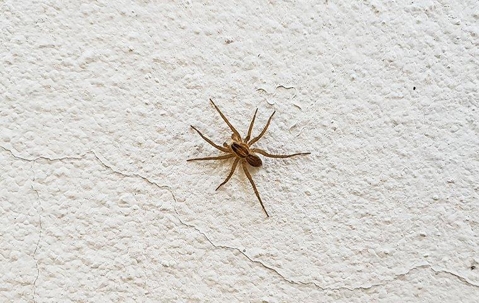New Haven County strikes a perfect balance of new and old; this seaside metropolitan area is like a siren luring all to come and enjoy. Unfortunately, the common house spider is an arachnid that would like to cohabitate with you in this coastal oasis. It doesn’t need much room, but if it can’t get the food it needs, it can leave sticky messes all over your house.
What Everyone Ought To Know About House Spiders
In the family of arachnids, house spiders are the most common species found in homes, so much so that they are aptly named house spiders. Multiple species live in and around homes and some are more dangerous than others. Therefore, homeowners should know what kind of species is quietly hanging a web in the recesses of their home.
Some identifying characteristics of a house spider include:
- A yellowish-brown elongated body with dark stripes that meet at an angle on its dirty white abdomen
- Females that measure from 3/16 inch to 5/16 inches; and males that measure 1/8 inch to 3/16 inches.
- Eight legs, one row with serrated bristles
- Eight eyes
All spiders technically have fangs and venom. The good news for homeowners is that the house spider is generally harmless to humans. While there may be many different species, they are more of a nuisance pest than harmful to the occupants inside your house.
The Secret Hiding Place Of New Haven County House Spiders
House spiders are not brash occupiers; they tend to be shy and build their webs in hidden areas. It only takes a few days to create a newly constructed web. When a house spider positions its web, it usually places it in an area where blowing air will direct prey into it.
Areas that house spiders build their webs are as follows:
- On the underside of furniture
- Upper corners of rooms
- In the corners of windows
- Basements
- Crawl spaces
- Inside closets
A house spider’s tangled web is placed in homes arbitrarily. If the web does not catch prey, the house spider will move to another location to build another one. It can be challenging for house spiders to survive in newer homes since newly constructed homes are better at keeping humidity levels low, which helps eliminate moisture-seeking insects.
Little-Known Ways To Prevent House Spiders In New Haven County
Making your house less attractive to house spiders may require homeowners to eliminate pests that house spiders find tasty. House spiders feed on insects such as flies, ants, spiders, and cockroaches. If these critters infest your home, they may provide just the invitation a house spider needs to feast. Controlling what a house spider preys upon can help keep house spiders under control.
Some additional prevention tips that deter house spiders include:
- Installing or repairing damaged screen windows and doors
- Sealing cracks or gaps inside and out with silicone-based caulking
- Using a vacuum (instead of a broom) to remove house spiders, egg sacs, and webs.
- Tightening up doors and windows that are at ground level.
- Removing objects piled or stacked close to your house.
Removing access points, disrupting nesting areas, and eliminating pest prey are all great ways to deter spiders.
Here’s A Quick Way To Solve Your House Spider Problem
Rescue 1 Pest and Termite Control identifies and removes house spiders and the pests that attract them. Our company quickly responds to all customer inquiries and has 30+ years of experience fighting pests in the New Haven County area. Call the pest experts at Recuse 1 Pest & Termite Control today for effective home pest control and commercial pest control solutions to your pest predicaments.

